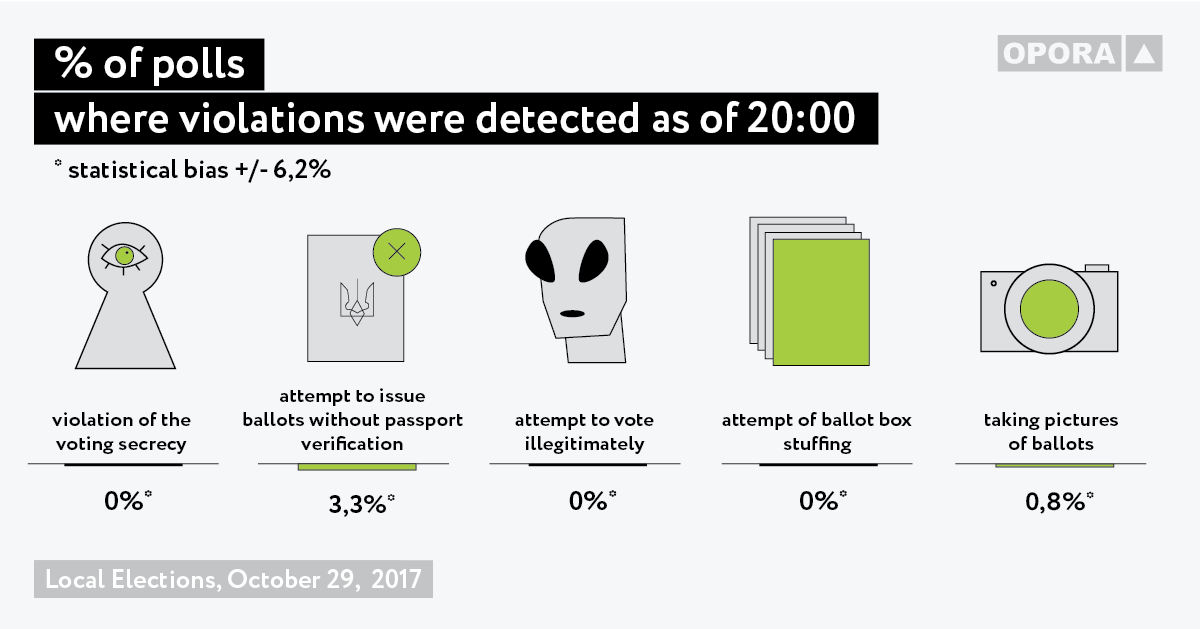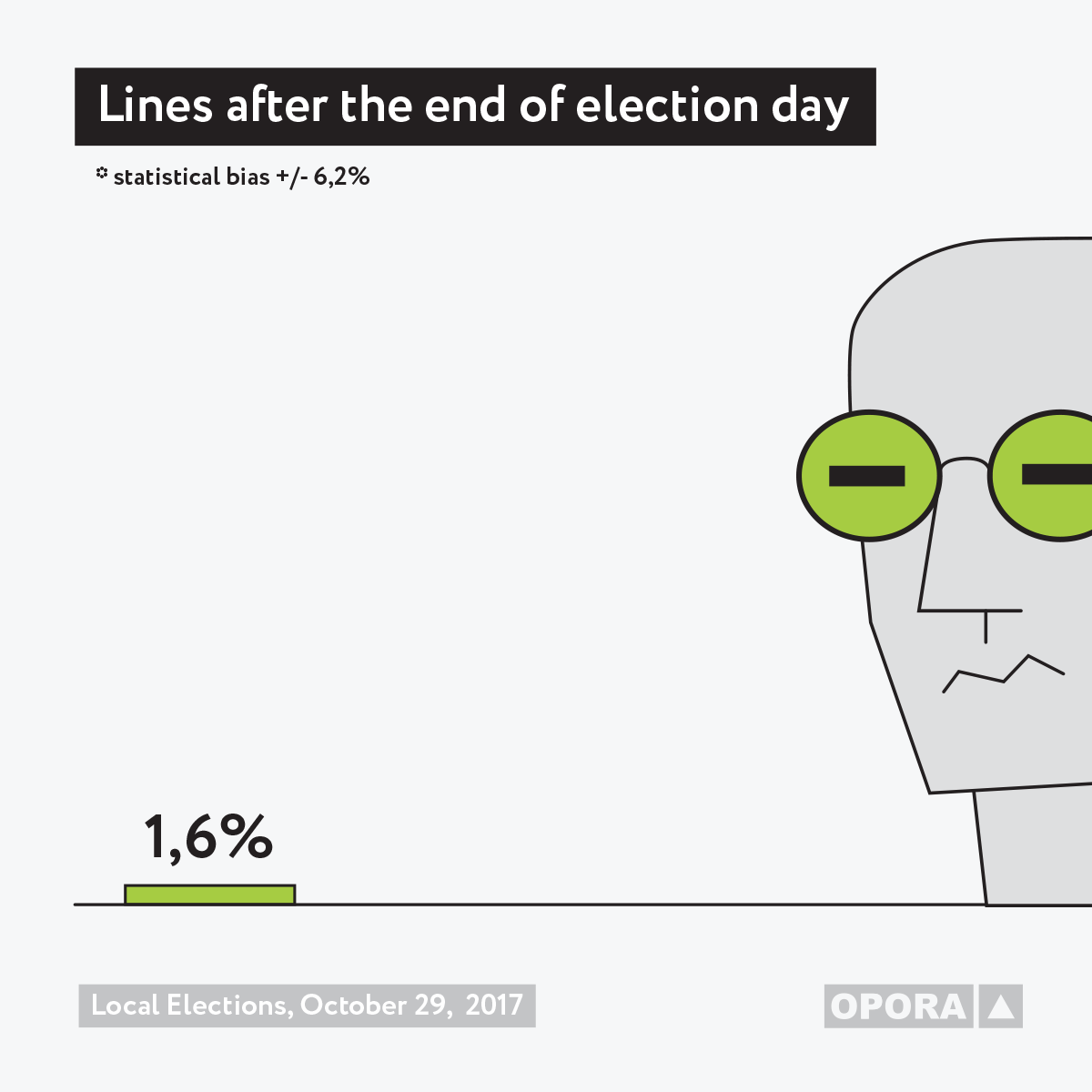The major problem in the end of the voting day is still the issuance of ballots without passport verification, despite the percentage of such incidents is much lower, reaching only 3.3% compared to the first half of the election day. In most cases, OPORA's observers prevented the commitment of such criminal offenses. However, even though independent observers respond to such violations, the illegitimate issuance of ballot papers is tolerated by election commissions. Moreover, there were even attempts to legitimize such actions by collegial decisions of commissions.
Similarly to the previous reporting period, OPORA's observers detected violation of the voting secrecy at 0.8% of polling stations as of 8:00 PM.
Observers reported errors and inaccuracies in ballot papers throughout the election day, caused by irresponsible attitude of PECs to their duties, which undermine the trust in election process and question the adherence to the principle of electoral competitiveness.
The election commissions duly respond to attendance of unauthorized persons at election precincts, detected by observers at PECs in Vinnytsia, Rivne, and Luhansk oblasts. However, the problem is that officials and MPs, who are usually attend, misuse their status and powers. Their actions are illegal and urge the commissions to ignore such violations of electoral legislation.

In the end of election day, there were solitary reports from observers about transportation of voters to polling stations (Kharkiv and Zaporizhia oblasts). Formally, it's not a violation. But any activities referring to the preparation and conduct of elections may be financed either from budget, or from the electoral fund. The equal opportunity principle may be guaranteed only providing everyone use only established by the law financing. In case of voter transportation, law-enforcement bodies should check which financing is used for the transportation, and whether the voters are supporters of a certain candidate or all voters. Unfortunately, law-enforcement officers didn't check the circumstances of such incidents.

In general, OPORA's observers state that they didn't notice major violations, which may influence the election outcomes. At the same time, observers reported about minor violations at 13.6 PECs Observers have also informed that precinct election commissions provided them unimpeded access to observation of any election procedures.
High activeness of voters (48.2%) caused lines of voters on the moment of closing the polling stations. Such situations were detected by observers at 1.6% of PECs.